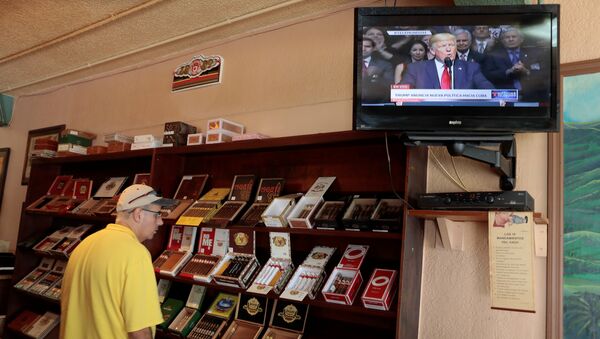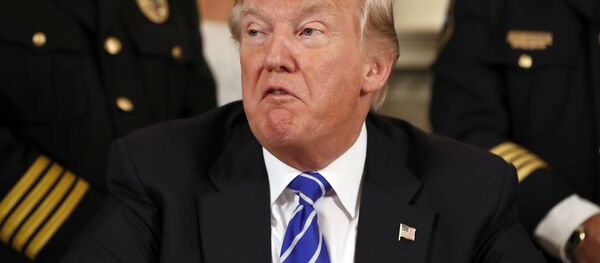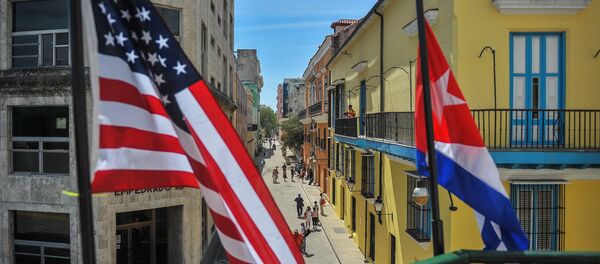On Friday, US President Donald Trump announced that he is rolling back the measures taken by his predecessor Barack Obama which loosened restrictions on travel and business with Cuba.
"Effective immediately, I am canceling the last administration's completely one-sided deal with Cuba," Trump told a crowd in Miami.
In March 2016, Obama became the first US President to visit Cuba since 1928. Among the measures taken by his administration were the removal of Cuba from the US State Sponsors of Terrorism list and the establishment of embassies in Washington and Havana.
The executive order Trump signed on Friday tightens travel restrictions for Americans going to Cuba and bans US business transactions with the Cuban military.
Dr. Gary Prevost, Professor of Political Science with the College of St. Benedict and St. John's University, told Radio Sputnik that the "devil is in the detail," which will be revealed when the Treasury Department releases the official measures in the next one to three months.
"It is now going to return to the situation that existed prior to last September, which is that anyone going there must go in an organized group, and the organized groups can only be done by government-sanctioned providers of travel and that's inevitably going to limit the number of US citizens who are traveling to the island."
"The other companies are ones that were beginning to get into the market and were hoping to get more involved not just in tourism but directly into the Cuban economy. For example in the areas of telecommunications, hotel management and the environmental needs of Cuba. Every indication is that thso kind of business opportunities are not likely to be licensed by the Treasury Department."
"Business opportunities, even under the Obama initiative, still had to be fully licensed because the embargo that prevents US companies from doing business on the island is still in place."
"One report indicated that if the full extent of what Trump was trumpeting was going to happen, it could cost as many as 15,000 US jobs and $6 billion to the US economy," Prevost said.
"There is absolutely no chance" that Trump's measures are going to force reform in Cuba, which has a fundamentally different approach to human rights than the US.
Cuba does extremely well on many international human rights indicators, such as access to healthcare education and housing.
"Cuba feels very strongly that it already has a strong record in the arena of human rights. The US primarily defines human rights as Cuba having a multi-party political system, with what would be US-style elections and there's absolutely no chance that Cuba would be making any concessions in that arena in order to get more US investment on the island," Prevost said.




